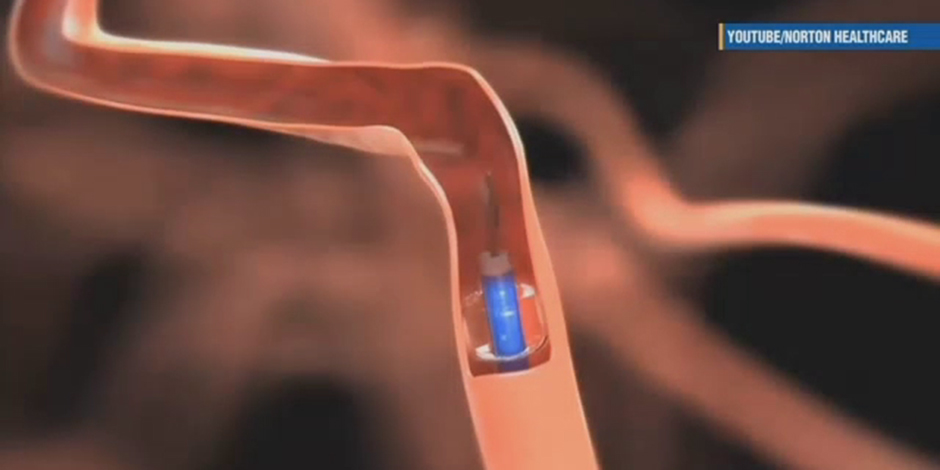Cutting-Edge Treatment for Severe Stroke at NYC Health + Hospitals/Kings County Is Saving Patients’ Lives
The New Procedure, Mechanical Thrombectomy, Is an Effective Treatment for Severe Stroke Cases
Aug 03, 2017

NYC Health + Hospitals/Kings County’s award-winning Stroke Center has added a cutting-edge, minimally invasive surgical technique to treat acute ischemic stroke, and the first patient to undergo the procedure—mechanical thrombectomy—has been successfully treated.
Mechanical thrombectomy is an option for the treatment of acute ischemic stroke, a type of stroke that occurs when a blood vessel carrying blood to the brain is blocked by a blood clot. The treatment involves the insertion of a catheter through the patient’s groin and threading it into the artery where the blood clot is located. A device called a “stent retriever” is then inserted to trap the clot and pull it out through the catheter.
“For the most severe cases of ischemic stroke, the mechanical thrombectomy has an 80 percent chance of success, whereas the use of blood-thinning medicine by itself has a 40 percent chance of success,” said Donnie Bell, MD, Director of Neuro-Intervention at NYC Health + Hospitals/Kings County, who performed the hospital’s first procedure. “This technique was recently designated an effective treatment of choice for certain cases.” He adds that current guidelines indicate the procedure is most effective when administered early, preferably within the first six hours.
“The doctors here gave me my life back,” said Kelvin Bryant, a Brooklynite who was the hospital’s first patient to undergo the life-saving procedure. “When I came in, I had no power. Today, I can walk, and I won’t take anything for granted.”
“NYC Health + Hospitals/Kings County cares for some 500 patients experiencing acute stroke each year, and we are committed to providing the best care to everyone who comes through our doors,” said Ernest J. Baptiste, CEO of NYC Health + Hospitals/Kings County. “Our doctors are some of the best in the country, and our community benefits.”
The Stroke Center at NYC Health + Hospitals/Kings County is widely recognized for its high-quality care, having received awards from the American Heart Association/American Stroke Association for the past six years. The Stroke Center offers a comprehensive program that includes both inpatient and outpatient services. The inpatient program integrates radiology and neuroscience, among other services, to provide acute stroke neuroimaging (CT scan and MRI), IV thrombolysis, acute stroke nursing, neurosurgery, and a 24/7 stroke team. The outpatient program includes a stroke clinic, neuropsychological assessments, nutrition and diabetes education, home health aide/nursing care, and transportation arrangements for those in need.
“Our care is a team approach, reflecting close collaboration among the departments of quality improvement, nursing, emergency medicine, critical care, neurosurgery, and neuroradiology, and this collaboration is a key to our success” said Susan Law, MD, Director of the NYC Health + Hospitals/Kings County Stroke Center. “While we continue to expand our treatment options, we always want to remind people who experience warning signs of possible stroke to get to the emergency room as soon as possible.”
The warning signs of stroke are remembered by the acronym F.A.S.T.:
Facial weakness or asymmetry
Arm or leg weakness or numbness
Speech – slurred or unintelligible
Time – time loss is brain loss
Stroke is the fifth-leading cause of death in the United States, as well as a leading cause of disability. Risk factors for stroke include high blood pressure, diabetes, heart disease, high cholesterol, smoking, poor diet, and lack of physical activity.
Dedicated to the improvement of care, NYC Health + Hospitals/Kings County is also engaged in research to develop breakthroughs in the treatment of stroke. It is partnering with NewYork-Presbyterian Hospital to pilot a program that educates adolescents about stroke and its signs and symptoms. And it is collaborating with SUNY Downstate Medical Center and NYU Langone Medical Center on research projects.